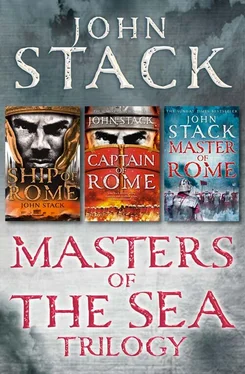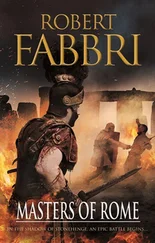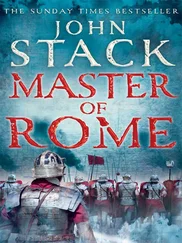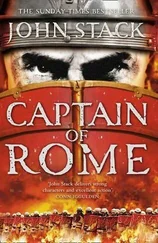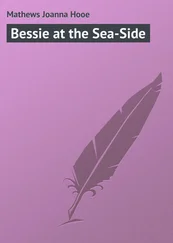‘Drum master, ram—’ His words were cut short by the sight of the Roman trireme increasing her pace to her top speed. He hesitated for a second, perplexed, then gathered his wits: ‘Ramming speed, drum master, ramming speed!’
Karalis ran to the foredeck to confirm what he saw. At only one hundred yards’ distance the Roman galley filled his field of vision. She was drawing ahead slightly, her faster lines giving her the advantage at top speed. Karalis was dumbstruck. Why by the gods would the Romans increase speed unprovoked? Surely once she went to top speed her rowers would only last mere minutes? The captain of the Sidon was still trying to understand the Romans’ lunacy when suddenly, within one stroke, all two hundred oars of the Roman trireme were raised clean out of the water.
At ramming speed the bow of the Aquila tore through the water at thirteen knots, the drum master pounding eighty beats a minute, forty strokes for each of the trireme’s two hundred oars. Atticus leaned forward over the bow rail, measuring the distance between the Aquila and the rim of the whirlpool ahead. He stuck out his right hand again for a minor course adjustment, the ship responding instantly to Gaius’s expert touch on the tiller sixty yards behind. He dropped his arm and the ship steadied on its final course, one that would take the galley to the very edge of oblivion, the gaping maw of Charybdis. Atticus afforded himself a brief look over his shoulder to the pursuing enemy galley. The shield wall was obscuring his vision; however, he could tell by the line of her oars that she was matching their course adjustments, point for point, wary that her prey might suddenly make a drastic course change in a bid to escape. He turned to the bow again, refocusing all his attention on the point where the Aquila would skim the edge of the whirlpool, now forty yards away … now thirty … twenty …
He had to be exact. Too soon and the ship would not have enough momentum for steerage; too late and the starboard rowers would fall victim to the currents of Charybdis.
It was now, the moment was now, the bow of the Aquila was ten yards short, Charybdis was upon them. He spun around, looking for Lucius, finding him riveted to his post on the aft-deck. Their eyes locked.
‘Now, Lucius!’ he roared.
Lucius responded, ‘Drum master, raise oars!’
The order was instantly repeated below in the slave decks. The drum beat stopped. The slaves threw themselves forward, pivoting their oars, lifting the blades clear out of the water.
The Aquila sped on, at first her speed checking imperceptibly. Atticus sprinted the length of the galley to the aft-deck, barely registering the terrified faces of many of the marines who had never witnessed the fury of Charybdis. To his left the churning waters of the whirlpool were speeding past the Aquila , only six feet from the hull, running counter to the direction of the trireme but not hindering her progress.
Gaius stood immovable at the rudder, his gaze steely as he sought to keep the tiller straight along the axis of the ship, the true course of the Aquila vital if she was to avoid becoming the victim of her own trap. The captain took up station beside him, his hand resting lightly on the tiller, searching for a telltale tremor that would betray any pressure on the rudder’s blade.
Atticus saw Gaius’s reaction a heartbeat before the minute tremor under his hand confirmed the helmsman’s incredible reflexes and he gripped the tiller tightly. Beneath the Aquila an unseen tentacle of current, too weak to attack the seventy-ton hull, was building against the rudder, threatening to force the blade off true. Within seconds the pressure had multiplied tenfold and the muscles in both men’s arms were tensed and flexed as they struggled to keep the tiller aligned.
Time slowed as Atticus’s mind counted the seconds it would take to sail past the whirlpool. Beside him Gaius’s face was mottled from exertion while beneath him speed bled from his galley as the enemy closed in. The sound of Lucius’s voice filled the air, sounding the ever-decreasing gap between the two galleys. ‘Seventy yards …! Sixty yards!’ and all around him the faces of the crew were frantic as they witnessed the struggle of their captain and helmsman. Underneath it all, Atticus felt the rudder shift slightly under his hand and for an instant a panic flared in his heart that he had cut his course too close to the vortex.
Hold your course, Aquila , his mind roared, trying to connect his will to the ship.
Almost within an instant the pressure on the rudder was released, and Atticus knew the Aquila was through, the waters around her hull becoming calm once more as the whirlpool fell off her starboard stern quarter. He spun around to his second-in-command.
‘Lucius, prepare to get under way. Get below decks, have all the reserves assigned plus any additional crew available. Do whatever’s required, but I need attack speed immediately.’
‘Yes, Captain,’ he replied, and was instantly away.
Atticus moved to the stern rail to watch his pursuers. Now, he grinned with satisfaction, the Carthaginians would feel the wrath of Charybdis.
The Sidon cut through the water at twelve knots, closing the gap on the Roman trireme by ten yards every five seconds. Karalis had wavered for an instant, unable to comprehend the Roman captain’s actions, before his years of command experience took over. He realized they would be upon the Roman ship within a minute. Karalis shrugged his questions aside and began issuing orders to his assembled crew.
‘Prepare for impact! Assemble the boarding party!’
They would ram the Roman galley through her stern, a killing blow, taking her rudder and holing her below the waterline. While the Romans were recovering, his boarding party would spill over the stern rail, killing the senior officers who would be stationed there. He would lead his men personally, they would spare no one, and when his ship finally disengaged, tearing her bronze ram from the hull, the Roman trireme would drag her chained slaves beneath the waves.
The gap was down to fifty yards when the Roman vessel re-engaged her oars. You’re too late, fool, the captain thought. The Sidon was at the point where the Roman crew had inexplicably raised oars. He would be upon them within fifteen seconds.
On the slave deck of the Sidon , the galley slaves were oblivious to the action above decks. Chained to his oar, each of the two hundred men was enclosed within his own private hell. For many of them, years at the oar had brutalized them and they worked in silence, their whole world focused on the constant rhythm of their oar-stroke, the backbreaking pull, the quick release to bring the oar forward, a second’s respite, the muscles straining again through the next pull. Sweat poured to mingle with fresh blood raised by the taskmaster’s lash across their backs, as man after man collapsed in exhaustion, to be savagely beaten where he fell as a reserve took his place, the unrelenting pace never abating.
The thirty rowers of the starboard fore section of the Sidon were the first to strike Charybdis. Not six feet from where they stood, on the other side of the hull, the current of the whirlpool sped past them at twenty knots. Keeping to the beat of the drum master, the rowers brought their oars forward and stuck their blades into the water in unison. Instantly the oars were ripped from their fingers as the current took hold of the blades and pushed the oars parallel to the hull. The slaves on the lower two rows screamed in agony as the oars of the upper row, fifteen foot long and fifty pounds in weight, spun on their mountings and slammed into them, killing many instantly. Within the instant marked by the drum master’s beat, the second section of thirty rowers endured the same fate, fuelling the destruction of the slave deck. The starboard side was in chaos, a mayhem of broken men. The port side never missed a beat, the rowers continuing at full tilt, completing the trap.
Читать дальше
